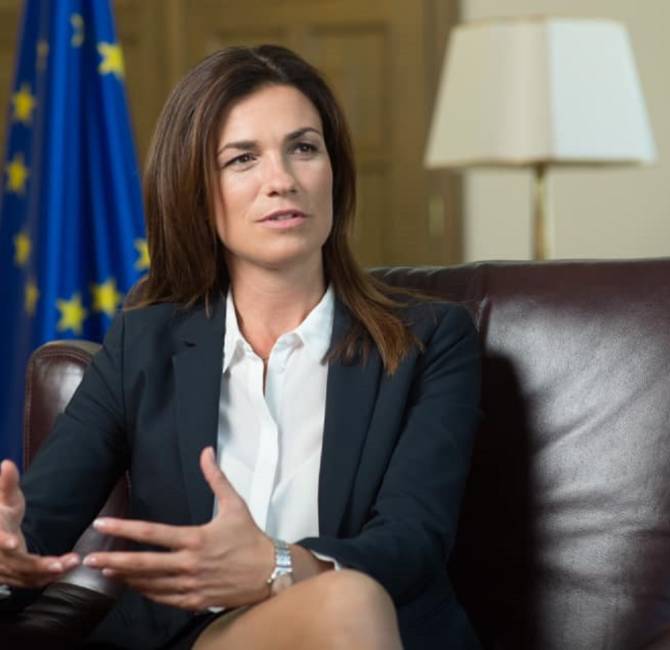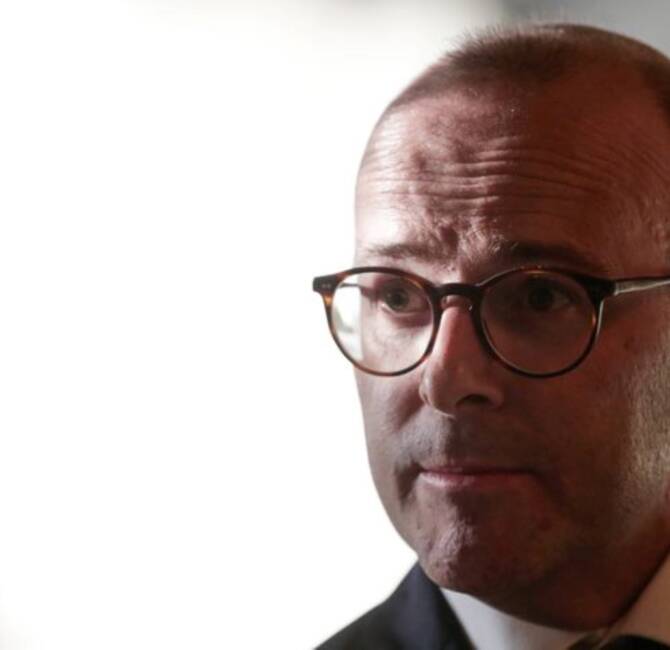This article has been published online by the Magyar Nemzet on June 4, 2021.
„They want an expedited decision on one of the most complicated legal questions in EU history, but in a simple procedural issue we had to wait three years for a decision?” commented Judit Varga in her interview with Magyar Nemzet regarding the ongoing EU debates on rule of law. In connection with the recent decision from the Court of Justice, the Minister of Justice pointed out: this is a legal decision that not a single champion of rule of law was concerned with. „I myself said at every Article 7 hearing that I shouldn’t even be here until there is a court ruling” she stated, adding that: putting it lightly, it is problematic that the very functioning of the EU institutions lacks the rule of law elements such as due process and legal certainty.
We are talking about a judgement in a legal proceeding that the rule of law champions are not concerned with at all
Judit Varga told Magyar Nemzet responding to Thursday’s ruling from the European Court of Justice to reject Hungary’s lawsuit filed in Luxembourg against the legally invalid voting procedures for the Sargentini report. (As is known, in the autumn of 2018, the European Parliament gave the green light to a report by Judith Sargentini that was rather exaggeratedly critical of Hungary. During the voting process, abstentions were not counted as votes thus they were able to obtain the two-thirds majority needed to activate the Article 7 sanctions. The Hungarian government then appealed to the Court of Justice, alleging a procedural irregularity -ed.)
According to the Minister of Justice, the European Parliament’s resolution from almost three years ago and the Article 7 procedure launched in the name of so-called rule of law, are controversial in many respects. “Thus far, the Article 7 proceedings have taken place without the EU institutions or the European left acknowledging the case in the Court of Justice. Not one of the rule of law champions cared that there is an EU country with a relevant legal concern regarding the procedure. I myself said at every Article 7 hearing that I shouldn’t even be here until there is a court ruling.
In any state governed by rule of law, it is fundamental that there is no enforcement in the absence of a final decision” the Justice Minister pointed out. “Actually, there was a basic factual question here. Is there even an existing Sargentini report at all? Were the Article 7 sanctions even initiated?” she said.
Factual Inaccuracies
Judit Varga also highlighted clear factual errors related to the court decision: “If a Member of the European Parliament casts a vote, he or she has three options. A yes, no or abstention vote. It is common sense: why would there be a third option on the voting machine if it is not officially counted as a vote?” said the Minister. She also brought up the fact that during the 2018 EP vote, there were MEPs who sympathized with the Hungarian government, but for
domestic political reasons, hit the “abstention” button instead of the “no” option. “The MEP’s right to a free mandate has been violated, and the politicians in question have essentially contributed to Sargentini’s success against their will”, said Judit Varga. She believes it was no coincidence that in the days leading up to the vote, the Green Party’s Sargentini encouraged MEPs to grab a coffee somewhere else instead of voting. “She certainly knew and feared the fact that the abstentions would decrease the chances of her report winning the vote” added the Justice Minister.
In the meantime, another legal procedure is emerging within the ongoing debates on rule of law: this time, the European Parliament is considering proceedings against the European Commission because MEPs claim the Commission is committing an infringement by not applying the conditionality regulation which came into force on January 1. Hungary and Poland have since challenged the law establishing the rule of law in the Court of Justice; an agreement reached between Heads of State and Government asserted this last December.
A Typical Brussels Battle
The Minister of Justice told our paper that the European Council – a unit of Europe’s Heads of State and Government – is the top body of the EU and they have the final say; in fact, the President of the European Commission committed himself to the agreement last December.
“This is a typical power struggle in Brussels we see here. The question is, who is the boss: the Member States or the European Parliament?
The answer is obvious: the EP did not even have a role in the December political agreement as the treaties do not give it such legitimacy. Yet still, left-liberal MEPs are threatening the Commission, one of the deal’s actual players” emphasized the Minster. She also reminded: the EP requested an expedited decision from the ECJ in this case and a decision could be made within a matter of days. In any case, there are contradictions here as well: While we had to wait nearly three years for a decision on the Sargentini trial, MEPs are hastening a barely half-year-old trial connected to EU funding.
Let’s compare these two issues! They want an expedited decision on one of the most complicated legal questions in EU history, but for a simple procedural issue we had to wait three years for a decision?” questioned Judit Varga. To put it lightly, she considers it problematic that the very functioning of the EU institutions lacks the rule of law elements such as due process and legal certainty. “In any case, I am confident that the Court will make an objective decision in considering the motion for expediting the process” she added. “This matter is a good example of why we should have no illusions: if the EP were to get more power in the future, as the European left and Hungarian opposition demand, this is how they would abuse their power. This is all just a political game that has nothing to do with the”
Jourova has Nothing to Say
Magyar Nemzet brought up Věra Jourová’s suggestion that there is no need to wait for a court ruling, Brussels will deliver rule of law sanctions within the next few months. Judit Varga responded that she does not consider the Commissioner’s biased and politically motivated opinion to be relevant.
“I believe the European Commission’s President and the entire institution to be more than the proclamations of Věra Jourová. I do not put too much value in her words as she is clearly fixated on Hungary.”
The Justice Minister also confirmed that due to Jourová’s extreme statements, they still do not consider her a partner and do not wish to renew diplomatic relations with the Commissioner. “We have nothing to say to someone who calls Hungarian democracy sick and looks down on the Hungarian people from an apparently independent position” stated the Minister of Justice.
Tamara Judi (Brussels)




